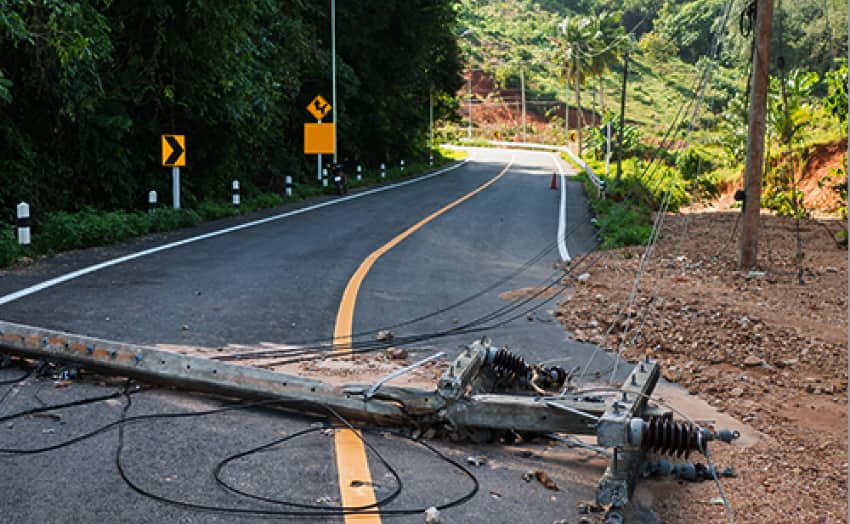Swiss Re warns of cascading effects (and losses) of natural disasters

Global reinsurance firm Swiss Re has issued a report that warns of the cascading effects of natural disasters, highlighting that catastrophes and severe weather can have knock-on effects outside of the immediate property damage caused, all of which can exacerbate insurance and reinsurance market losses.
Swiss Re’s 2024 edition of its SONAR report features 16 emerging risks and their potential impacts on the insurance sector and society.
Most notable for the insurance-linked securities (ILS) market is the highlighting of how impacts and therefore losses can cascade beyond the direct damage-related effects of natural catastrophes and weather events.
“The world is facing multiple interconnected crises which bring about ever-more complex risks,” Swiss Re’s report concludes.
With natural disasters one of the risks that is connected to the broader economy and society in a number of ways and that can have cascading effects and cause cascading losses, as a result.
Patrick Raaflaub, Swiss Re Group Chief Risk Officer, commented, “We live in a world characterised by interconnected crises, which in turn can give rise to new risks. For re/insurers, it is key to anticipate trends and understand how major global issues such as climate change, economic uncertainty or geopolitical turmoil could impact not only the industry but also society as a whole.”
With weather-related disasters seen to be increasing in frequency and severity, according to the reinsurance firm, property damage and loss of life are the immediate concerns.
But, Swiss Re says it is the cascading effects of such events that pose additional risks, to society and the re/insurance industry.
“Wildfires can impact the water infrastructure by contaminating water sources or cutting access to it. Floods and storms can likewise damage energy grids and disrupt transport networks, bringing production lines to a standstill due to lack of power, leading to lost production time, materials spoilage and delays to deliveries,” Swiss Re explains.
While, “If critical infrastructure and supply chains are affected, the accumulation of damage can be significant,” the reinsurer adds.
The reinsurer notes that the cascading effects of natural disasters are less well publicised and understood than the immediate damage, but can be as impactful and costly.
The cascading effect of damage to infrastructure can drive loss accumulation and drive claims in property and business interruption insurance.
While another cascading effect, of service interruption, can drive business interruption and contingent business interruption claims, and even liability claims, while also threatening insurers own operations, Swiss Re’s report warns.
Overall, the cascading effects of natural disasters and weather events are seen as underestimated, while the connectivity of economic sectors are not as well modelled or understood as they could be, all of which makes it hard for insurers and reinsurers to predict outcomes and means these cascading effects can drive unexpected losses, especially to property towers.
These are types of losses that can be less well-modelled, but are often covered under ILS contracts, especially in collateralized reinsurance and retrocession, or via quota shares.
So, it’s important for ILS managers and investors to understand the risks of cascading effects after major disasters, as this can be a driver of higher than anticipated losses across the sector, which can feed into ILS arrangements as well.






